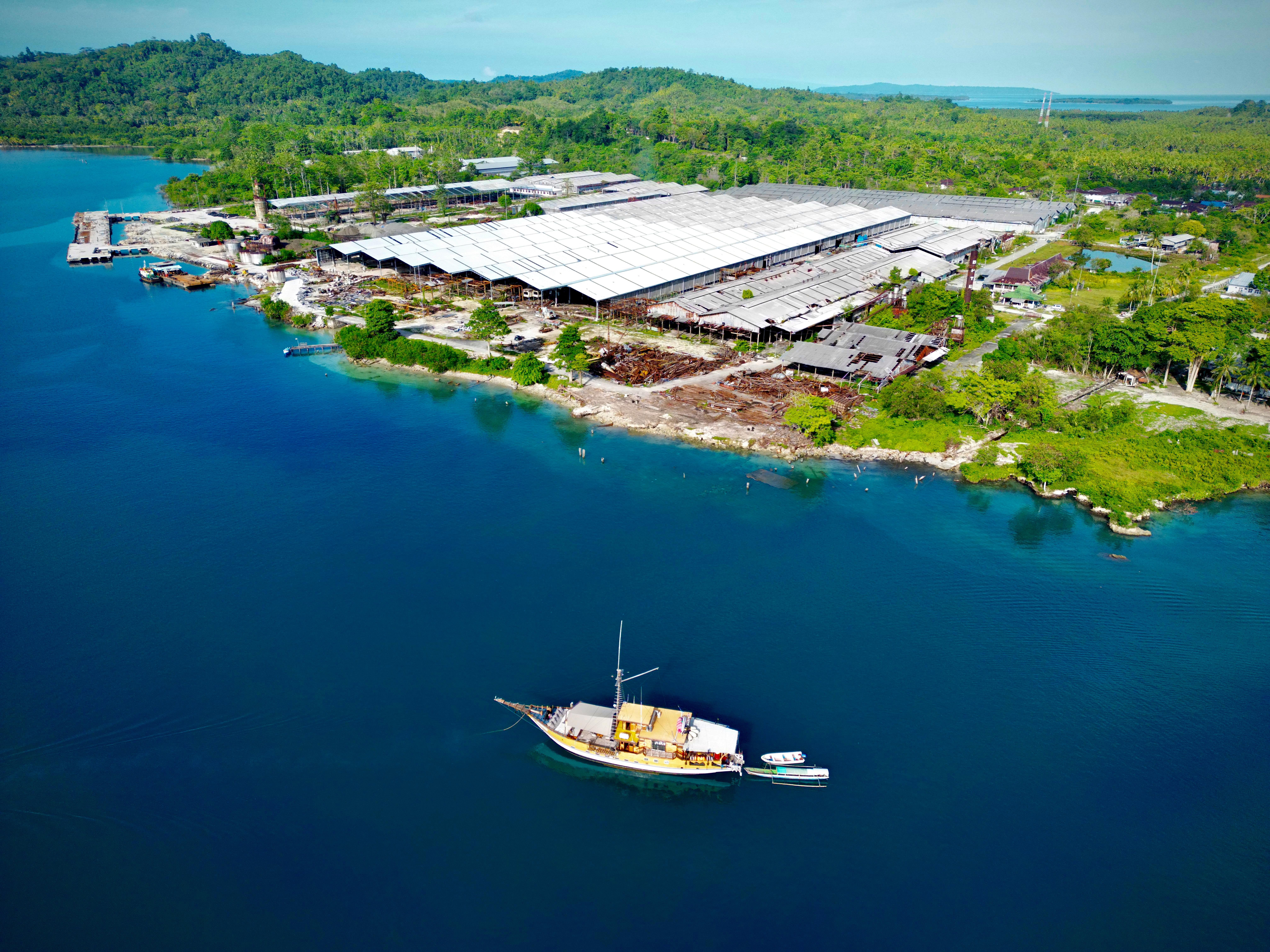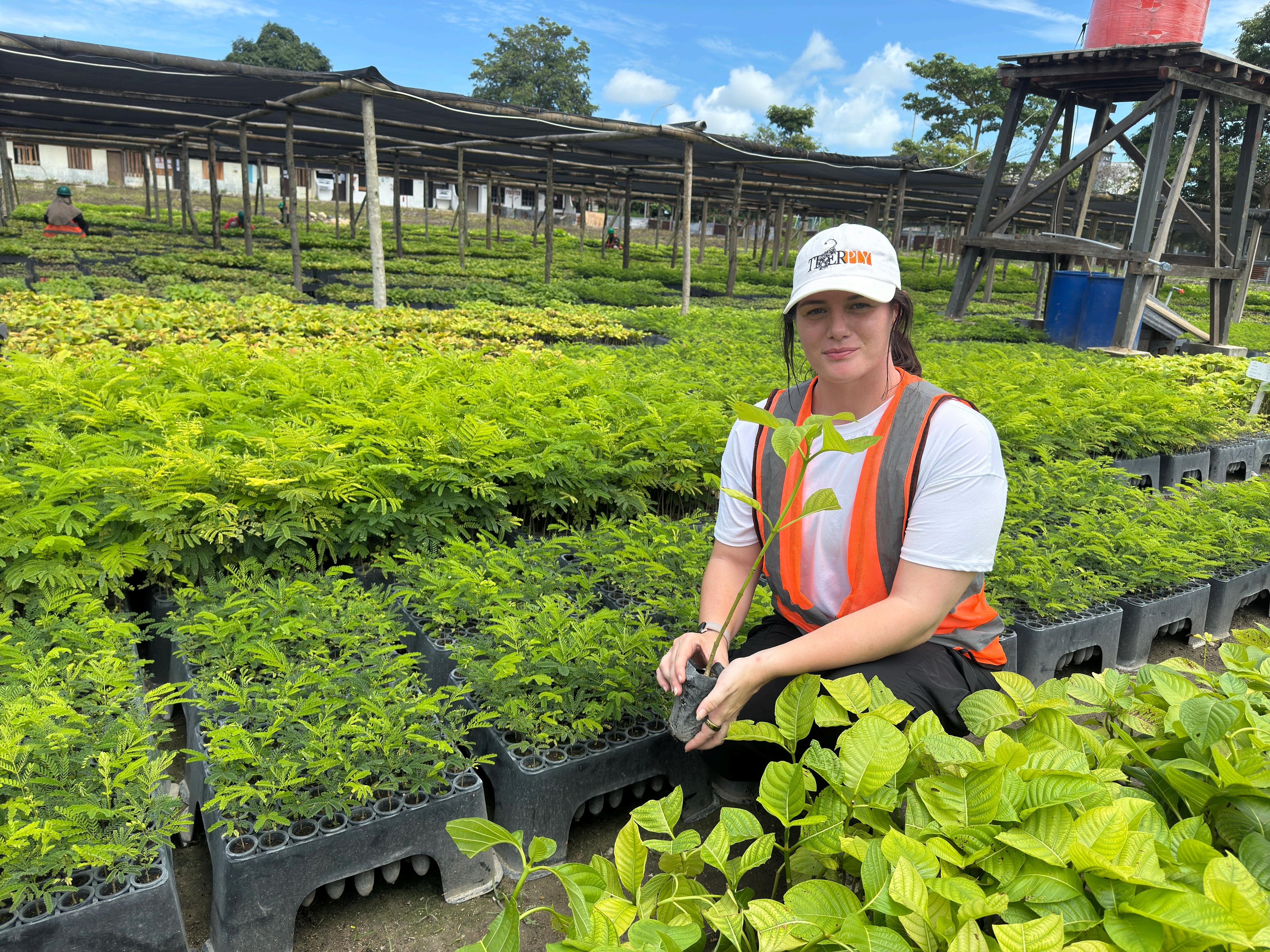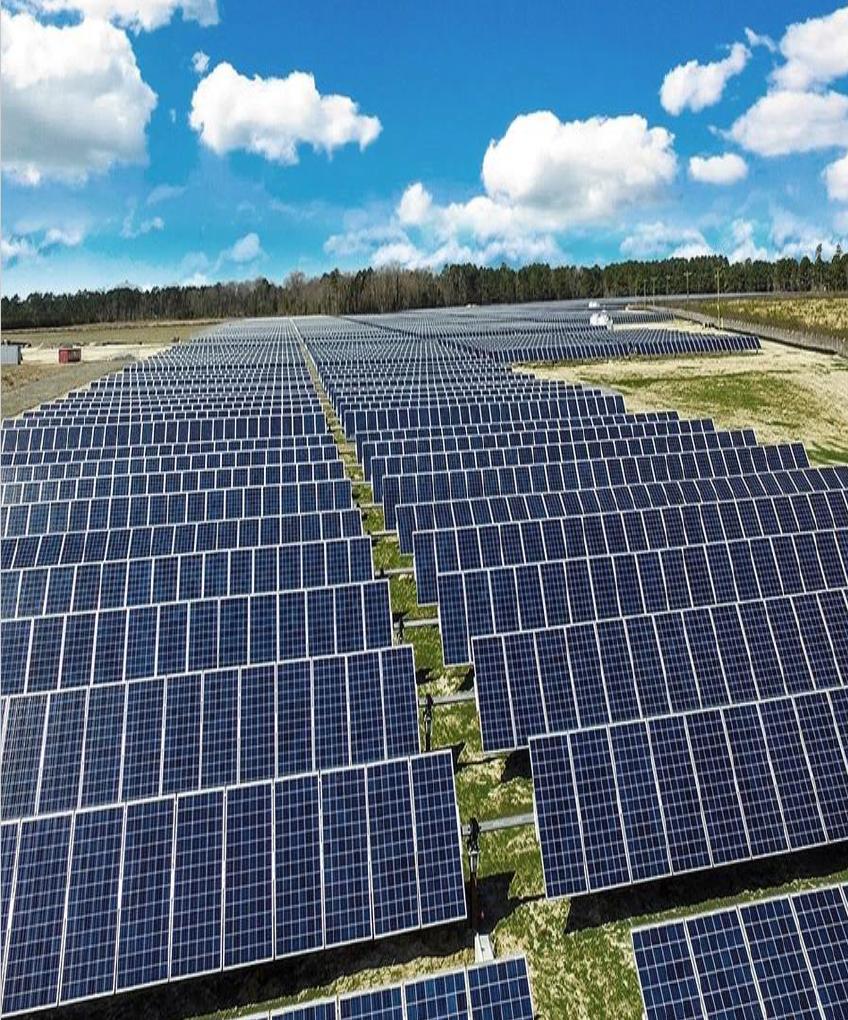
3 minute read
MANGOLE PROJECT
The Mangole Project: Redefining Plywood Manufacturing and Sustainability
Completing the Mangole Island Plywood Mill marks an extraordinary milestone in Shelter Forest International's (SFI) history. This state-ofthe-art facility, nestled on Pulau Mangole in East Maluku, Indonesia, is more than just a factory—it is a symbol of SFI’s commitment to pioneering innovation in the plywood industry while advancing environmental sustainability and socioeconomic development.
After five years of construction and meticulous planning, the Mangole Island Plywood Mill began operations in November 2024. It is poised to debut in the U.S. market by February 2025. With an investment of $120 million USD, the mill occupies 400,000 square feet. It has a remarkable production capacity of 12,500 cubic meters—or 250 containers—per month, positioning it as one of the world's largest and most advanced plywood production facilities.

This mill is a collaboration between SFI and Samko Trading PTE LTD. It is notable for its size and capacity and being Indonesia's first fully integrated plywood manufacturing operation. Combining plantation and production capabilities, the Mangole facility is a shining example of what can be achieved when industry, innovation, and environmental responsibility converge.
A Commitment to Sustainability and Responsible Forestry

At the heart of the Mangole Project is a deep commitment to sustainability and environmental stewardship. The facility relies on 150,000 acres of PEFC-certified plantations, managed with a 15-year rotation cycle to ensure a sustainable and responsible source of raw materials. This careful management supports high production standards and underscores the project’s role as a leader in environmental preservation. The Mangole Mill sets a benchmark for balancing industrial needs with ecological responsibility by integrating responsible forestry practices, and is Indonesia’s first large-scale plywood manufacturing operation powered by a solar energy field and an integrated power plant. This solar array generates 10 MW of clean energy, significantly reducing the carbon footprint of plywood production while meeting much of the facility’s energy needs. This innovation ensures consistent power in a region with variable infrastructure, enabling uninterrupted production and fostering energy independence. Combined with its zero-waste production model, which transforms wood by-products into wood pellets for clean biofuel exported to Japan, the mill exemplifies how the plywood industry can embrace sustainability without sacrificing efficiency or output.

By adhering to PEFC standards and embedding sustainability into every aspect of its operations, the Mangole Mill has a positive impact that extends beyond its facility. It benefits local communities, reduces environmental strain, and aligns with Shelter Forest International’s core values of eco-friendly innovation. Serving as a foundational pillar of the Mangole Project, the mill represents the future of sustainable industrial practices. It is a powerful demonstration of how forward-thinking technology and environmental responsibility can work hand in hand to drive meaningful progress.

